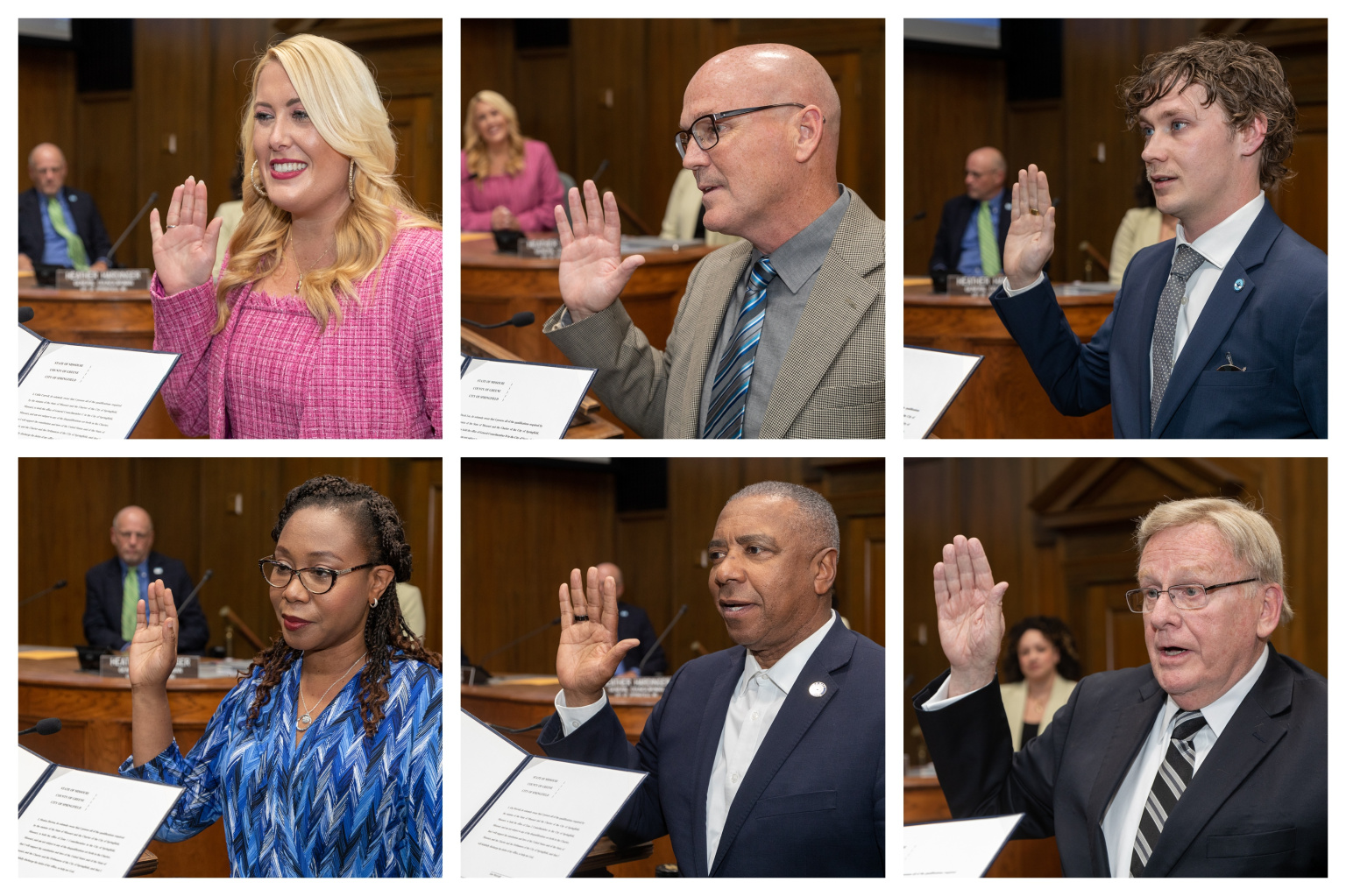Mayor Ken McClure, Zone 1 Councilwoman Monica Horton, and Zone 2 Councilman Abe McGull were reelected and three new City Council members were chosen in the April 4 election.
Mayor McClure was elected to the Springfield City Council in 2015, and then elected mayor in 2017. He was elected to a third term in April 2021 and now a final term. The Springfield City Charter allows a mayor to serve a maximum of four consecutive two-year terms.
Councilwoman Monica Horton was appointed to City Council in April 2022 to fill an unexpired term. She was elected for the remainder of the term. She ran unopposed.
- Councilman Abe McGull was elected in April 2019. He will be starting his second term. He ran unopposed.
- Callie Carroll has been elected as General Seat C Councilwoman. Councilman Andy Lear did not seek reelection.
- Derek Lee has been elected as General Seat D Councilman. Councilman Richard Ollis did not seek reelection.
- Brandon Jenson has been elected as Zone 3 Councilman. Councilman Mike Schilling did not seek reelection.
The City of Springfield’s three measures on the April 4 municipal ballot were approved by voters. Thank you to all who voted!
Question #1 asked voters to make several wording updates to the City Charter and allows the City to provide an entry hiring preference to all honorably discharged veterans who served active duty. Question 1’s passage will alter the language in six sections of the Springfield City Charter regarding hiring, firing and employee management. Springfield switched the name of its “personnel department” to “human resources department” in the 1990s, but the language in the Charter didn’t reflect the name change, until now.
Moving forward, Springfield’s Director of Human Resources has authority to terminate the employment of temporary, seasonal, contract workers and other non-regular and non-full-time transitional type of employees. Before this amendment, only the City Manager had such authority by Charter. The language change should also give City departments that rely on transitional workers with fluctuating hours more maneuverability in the future. Several departments, such as The Springfield-Greene County Park Board and the Public Works both use seasonal employees, and sometimes adjust employees’ hours depending on programming demands.
Question 1 also provides greater flexibility regarding the current reinstatement rule and allows the director of human resources to waive the entry competitive testing requirement for former employees who are eligible for consideration for reinstatement and have been separated from employment for less than a year.
Question #2 offers the Springfield City Council some flexibility with letting certain contracts out to bid and awarding them to contractors. The City Council may now opt to award contracts with a single bill reading at a single meeting, rather than reading a bill twice over a period of two meetings, with two or three weeks’ time in between.
Reducing the amount of time might increase the number of vendors who are willing to bid on City contracts, because they have to make less of a commitment of time regarding how long to hold their bid open. A notice to proceed could be issued more quickly if a decision could be made in one reading, rather than having to wait for a second City Council meeting.
Question #3 asked to repeal the existing 5% tourist lodging tax and replace it with a consolidated licensing tax at the same 5% rate for hotels, motels and tourist courts and add short-term rentals (Airbnbs, Vrbos). The replacement tax will continue at the same rate, but half of it will not expire. 2.5% of the existing tax expires when the bonds for the Jordan Valley Park are paid off. Removing the sunset and modifying the tax structure increases funding for sports, arts, and cultural tourism.


